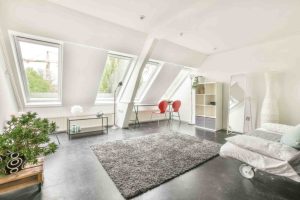How Does a Loft Conversion Differ From an Extension?
When you decide to add more space to your home, choosing between a loft conversion and extension can make a big difference.
Both options offer unique benefits, but they serve different purposes and come with their own set of considerations. For homeowners in South London and South West London, this decision is crucial due to the variety of property styles and space needs in the area.
Let’s understand how a loft conversion is different from a house extension and find out which one might be the best choice for your home.
What is a loft conversion?
A loft conversion involves transforming the unused space in your roof area into a functional room. This often includes adding windows, staircases, and sometimes dormers to maximise space and light.
Typical features of a loft conversion include:
1. Velux or dormer windows: To enhance natural light and provide a view.
2. New staircase: For access to the loft space.
3.Insulation and lighting: To ensure comfort and usability.
Benefits of choosing a loft conversion:
1. Cost-effective: Generally less expensive than a full extension as it utilises existing space.
2. Minimal disruption: Construction is typically contained within the existing building structure.
3. Adds usable space: Ideal for creating additional bedrooms, offices, or leisure areas.
What is a house extension?
A house extension involves adding new space to your home by building outwards or upwards. It’s a popular way to increase living space and enhance your home’s functionality.
Types of house extensions:
1. Single-story extensions: Expanding outward from one side of the house.
2. Two-story extensions: Adding additional space both downstairs and upstairs.
Benefits of choosing a house extension:
1. Increased living space: Offers significant additional space which can be tailored to various needs.
2. Design flexibility: Allows for more complex designs and layouts compared to loft conversions.
3. Enhances property value: Can increase the overall value of the property significantly.
Loft conversion South West London vs. house extensions South London
In South West London, loft conversions are popular due to the area’s abundance of period properties with ample loft space. Common designs include:
1. Dormer conversions: Extending the roofline to create additional headroom.
2.Velux conversions: Involving rooflight installations to create a lighter, more airy space.
Conversely, South London sees a variety of house extensions reflecting diverse architectural styles. Examples include:
1. Rear extensions: Expanding into the garden space, ideal for creating larger living areas or kitchens.
2. Side extensions: Often used to add extra rooms or widen the existing layout.
Extension and loft conversion cost
The costs for both options can vary widely based on several factors:
Loft conversion costs:
1. Basic loft conversion: £20,000 – £30,000
2.High-end loft conversion: £40,000 – £70,000
House extension costs:
1. Single-storey extension: £30,000 – £50,000
2. Two-storey extension: £50,000 – £80,000
Does a loft conversion add more value than an extension?
Both loft conversions and extensions can enhance property value, but their impact may differ:
1. Loft conversion: Typically yields a return on investment (ROI) of around 20-25%. Ideal for adding a bedroom or office space.
2. House extension: Can offer an ROI of 10-20%, with the potential for larger gains depending on the scale and quality of the extension.
What is Better: Loft Conversion or Extension?
Cost:
1. Loft conversion: More cost-effective, particularly in areas with valuable land like South London.
2. House extension: Higher costs but offers more extensive changes and increased space.
Value added:
1. Loft conversion: Adds value, especially in urban areas where space is at a premium.
2. House extension: Potentially increases value more significantly if it substantially enhances the property’s living space.
Space and functionality:
1. Loft conversion: Best for additional rooms without expanding the property’s footprint.
2. House extension: Provides more flexibility and larger living areas.
Disruption and timeline:
1. Loft Conversion: Generally less disruptive and quicker to complete.
2. House Extension: More complex, with potentially longer construction periods and greater disruption.
Contact Doran Bros Construction for loft conversions and house extensions
Choosing between a loft conversion and extension depends on your needs.
A loft conversion is great for adding space with less disruption, while a house extension offers more room and design options.
Ready to transform your home? Get in touch with us today to explore your options for a loft conversion or house extension and bring your vision to life.


